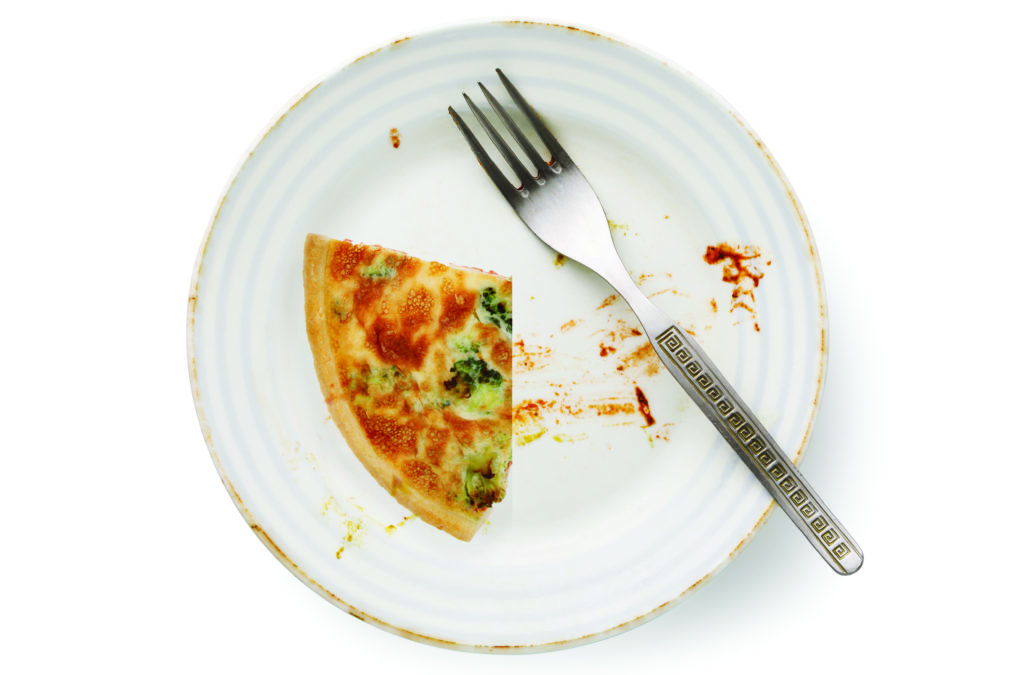Home / Bariatrics / Blog

How to Clean Your Plate
By Jennifer Tveitnes, RD, LD
Parents past and present have instructed children to “clean their plate” at the family table. Not only are kids expected to finish all the food on their plate, but it’s often a requirement before they can receive more food, especially dessert.
Always eating every bite of food on your plate, however, can quickly result in weight gain due to overeating. It’s important that we listen to our body’s hunger and fullness cues. Stop eating as soon as your body says it is full, not when your plate is empty.
If this is a habit you have developed, it can be difficult to break. There is often guilt attached to disposing of uneaten food. The first step is to work on letting go of the guilt! I always encourage people to consider that uneaten food will end up in one of two places: in the trash or in your body as extra calories and most likely, stored as fat. Which place would you prefer it go?
In addition to letting go of the guilt, there are other approaches to avoid overeating without throwing out uneaten food.
Use smaller plates and bowls. A smaller dish holds a smaller portion of food, decreasing the chance of overeating.
Be mindful of portion sizes when putting food on your plate or your child’s plate. You can always go back for more, but it’s harder not to eat food in front of you. It is okay to start with half a burger!
Your first serving of food should last at least 15 minutes. It takes 15 minutes for your stomach to tell your brain that it is full. If you finish your plate in less than 15 minutes, you may still feel hungry and go back for seconds. When that feeling of fullness finally hits, you will have food remaining on your plate from that second trip, causing you to eat more than your body needs.
Store your leftovers for later. Even if it’s not enough food for a second meal, the few bites that are left can be eaten as a snack or side.
Another way to help let go of the guilt over leaving food on your plate is to find alternative ways of disposing of leftover food. Find out if some of your favorite foods can be left out for birds or added to a compost pile.
When enjoying a snack, don’t eat from the box or bag. It’s easy to finish an entire package of food because you’re not paying attention to your hunger and fullness cues. Always put a snack in a bowl or on a plate, sit at the table, and eat slowly and mindfully.
Always remember that changing old habits is hard. Try one strategy at a time, go slowly and give yourself grace.